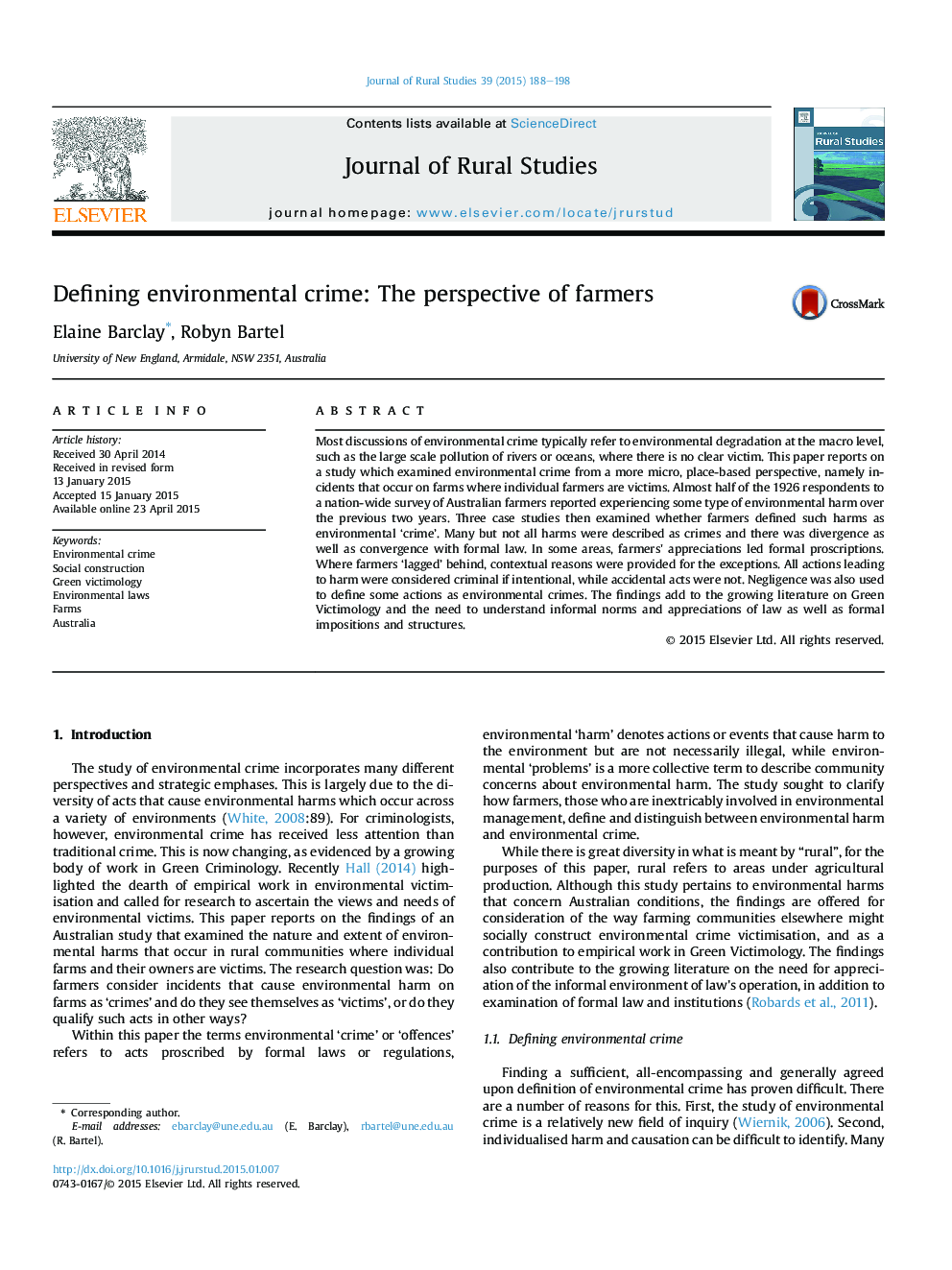| Article ID | Journal | Published Year | Pages | File Type |
|---|---|---|---|---|
| 6545670 | Journal of Rural Studies | 2015 | 11 Pages |
Abstract
Most discussions of environmental crime typically refer to environmental degradation at the macro level, such as the large scale pollution of rivers or oceans, where there is no clear victim. This paper reports on a study which examined environmental crime from a more micro, place-based perspective, namely incidents that occur on farms where individual farmers are victims. Almost half of the 1926 respondents to a nation-wide survey of Australian farmers reported experiencing some type of environmental harm over the previous two years. Three case studies then examined whether farmers defined such harms as environmental 'crime'. Many but not all harms were described as crimes and there was divergence as well as convergence with formal law. In some areas, farmers' appreciations led formal proscriptions. Where farmers 'lagged' behind, contextual reasons were provided for the exceptions. All actions leading to harm were considered criminal if intentional, while accidental acts were not. Negligence was also used to define some actions as environmental crimes. The findings add to the growing literature on Green Victimology and the need to understand informal norms and appreciations of law as well as formal impositions and structures.
Related Topics
Life Sciences
Agricultural and Biological Sciences
Forestry
Authors
Elaine Barclay, Robyn Bartel,
